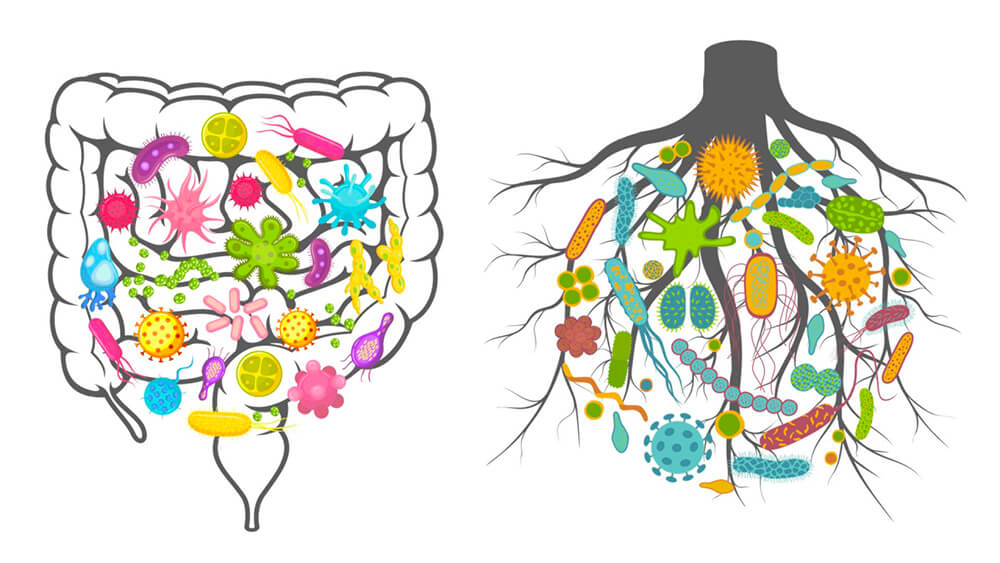Embarking on a journey to understand and meet your body’s nutritional needs is akin to exploring a complex, dynamic landscape. It’s not just about the food on your plate; it’s about a holistic approach that intertwines physical, mental, and emotional well-being.
This guide will take you through this landscape, emphasizing the interconnectedness of various nutritional elements and how they contribute to overall health.
The Holistic Foundation: Understanding Your Body
To truly master nutrition, it’s essential to start with a deep understanding of your own body, recognizing its unique signals and responses to different foods and dietary patterns. This foundational step is about cultivating a keen awareness of your physical and emotional responses to what you eat, setting the stage for a personalized approach to nutrition.

Photo by Brooke Lark on Unsplash
Listening to Your Body
Begin by tuning into your body’s signals – hunger, energy levels, mood fluctuations, and physical responses to certain foods are all vital cues. This self-awareness is foundational in a holistic approach to nutrition. It’s about recognizing subtle changes and understanding what they signify.
Are you really hungry or just bored? Does a certain food consistently cause discomfort? Answering these questions helps craft a diet that aligns with your body’s unique needs, enhancing overall health and well-being.
The Mind-Body Connection
Nutrition isn’t just about physical health; it’s deeply intertwined with mental and emotional well-being. Foods can influence mood, cognitive function, and even mental clarity. Recognizing this connection is crucial in mastering nutrition holistically. It’s important to understand how diet affects mental health.
For example, omega-3 fatty acids are known to boost mood, while excessive sugar can lead to fluctuations in energy and mood. Tailoring your diet to support your mind and body is a key aspect of holistic nutrition.
Nourishing the Whole Self
Nourishing the whole self is about choosing foods that provide comprehensive benefits, focusing not just on macronutrients but also on the essential micronutrients that play crucial roles in maintaining overall health. This approach encourages a diet rich in a variety of nutrient-dense, minimally processed foods, fostering a balance that supports both physical and mental wellness.

Photo by Sam Moghadam Khamseh on Unsplash
Quality Over Quantity
Focus on the quality of the food. Nutrient-dense, minimally processed foods provide more than macronutrients; they offer a symphony of micronutrients vital for overall health. This approach goes beyond counting calories to considering the nutritional value of each bite.
Foods rich in vitamins, minerals, and antioxidants not only nourish the body but also help prevent chronic diseases and improve longevity. Prioritizing high-quality foods also means avoiding additives and preservatives, which can adversely affect health.

Vitamins, Nutrients, and Superfoods Great for Muscle Growth
An improvement in your overall well being and health doesn’t just happen in the gym. It also works in the kitchen.
Diversity on the Plate
Embrace a diverse diet. Different colors and varieties of food ensure a broad spectrum of nutrients, each playing unique roles in bodily functions. This diversity is not just about taste but also the range of phytonutrients essential for preventing disease and maintaining optimal health. Each color in fruits and vegetables represents different nutrients, so a colorful plate is more than just visually appealing – it’s a sign of a well-rounded, nutrient-rich diet.
The Power of Gut Health
The power of gut health lies in its profound impact on overall wellness, from aiding in nutrient absorption to influencing mental health through the gut-brain connection. Maintaining a healthy gut through a balanced diet rich in probiotics and prebiotics is key to supporting this crucial aspect of holistic health.

The Gut-Brain Axis
Understanding the gut-brain axis underscores the importance of gut health in overall well-being. A healthy gut contributes to a strong immune system, emotional health, and effective nutrient absorption.
The gut microbiome, with its vast array of bacteria, plays a crucial role in digesting food and even regulating mood through neurotransmitters. This intricate relationship means maintaining gut health is essential for both physical and mental well-being, making it a central focus in holistic nutrition.
Probiotics and Prebiotics
Incorporate probiotics and prebiotics to foster a healthy gut microbiome. Fermented foods, whole grains, and a variety of fruits and vegetables support this balance. Probiotics add beneficial bacteria to the gut, while prebiotics act as food for these microbes. Together, they work synergistically to enhance gut health, which is vital for nutrient absorption, immune function, and even mental health.
A gut-friendly diet is a cornerstone of holistic nutrition, impacting overall health from the inside out.
Beyond Food: The Role of Lifestyle
A holistic approach to nutrition goes beyond food choices, encompassing lifestyle factors such as physical activity and stress management, which play a significant role in overall health and well-being. This broader perspective recognizes that a balanced diet, regular exercise, and effective stress reduction techniques are all integral to achieving optimal health.

Physical Activity
Regular physical activity complements nutritional efforts by enhancing metabolism, improving mood, and boosting overall health. Exercise isn’t just about burning calories; it’s about creating a body that functions at its best. Physical activity stimulates various body systems – from cardiovascular to neurological – and works with nutrition to achieve optimal health.
Whether it’s a brisk walk, yoga, or more intense training, incorporating regular exercise is a key aspect of holistic nutrition.

TRX Workouts – How To Strengthen The Whole Body in 30 Minutes
Is it possible to work all the muscles in your body in 30 minutes? Try a training plan, which will help you strengthen your whole body. And moreover, you will enjoy it.
Stress Management
Chronic stress can impact dietary choices and digestion. Techniques like mindfulness, adequate sleep, and relaxation practices are essential to holistic nutrition. Stress can lead to emotional eating and digestive issues, making it crucial to manage through holistic practices.
Integrating stress-management techniques like meditation, deep breathing exercises, or even hobbies that relax the mind can significantly improve nutritional well-being. This holistic approach ensures that both mental and physical health are in harmony.

Unwinding the Skeins of Stress: The Subtle Art of Therapeutic Caresses
Stress is as common as the air we breathe in the intricate web of modern life. But what if there was a way to gently unpick these knots of tension?
Personalization: Your Unique Nutritional Path
Personalization in nutrition recognizes each individual’s unique dietary needs and preferences, taking into account factors like age, gender, activity level, and personal health goals. This tailored approach ensures that dietary choices are aligned with one’s specific requirements, promoting optimal health and wellness.

Photo by maxhome fitness on Unsplash
Bio-individuality
Each person’s nutritional needs are unique. Factors like age, gender, activity level, and health goals dictate these individual requirements. Embracing bio-individuality means recognizing that what works for one person may not work for another. This personalization is key in holistic nutrition – finding what nourishes and works for your body.
It involves experimentation, listening to your body, and possibly working with a nutrition professional to identify the most suitable dietary pattern for you.
Intuitive Eating
Adopting intuitive eating principles can guide you to understand and respect your body’s hunger and satiety cues, leading to a more natural relationship with food. Intuitive eating is about breaking free from the cycle of dieting and learning to trust your body’s cues.
It encourages eating when you’re hungry and stopping when you’re full, focusing on how foods make you feel, and rejecting external diet rules. This approach fosters a healthier, more mindful relationship with food and is integral to holistic nutrition.

The Mind-Body Connection: How Mental Health Affects Physical Wellbeing
Mental health and physical health are inextricably linked. This article will help you understand the mind-body connection and how it affects physical health.
Continuous Learning and Adaptation
Continuous learning and adaptation in nutrition involve staying informed about the latest dietary research and trends while being open to adjusting your diet as your life and health needs evolve. This approach ensures that your nutritional choices remain relevant and effective in supporting your ongoing health journey.

Photo by Farhad Ibrahimzade on Unsplash
Staying Informed
Nutritional science is ever-evolving. Staying informed about new research and trends is vital, but always approach new information with critical thinking. The field of nutrition is constantly advancing, with discoveries and evolving guidelines. This includes opportunities for formal education, such as enrolling in an online sports nutrition masters program, which can provide in-depth knowledge and specialized skills.
Staying abreast of these changes while filtering out noise and fads is important in making informed choices about your health. This involves reading reputable sources, consulting health professionals, and applying new knowledge judiciously.
Adaptability
Be open to adapting your diet as your life changes. Nutritional needs are not static; they evolve with life stages, lifestyle changes, and health shifts. What works for you now may not work in the future. This adaptability is a key tenet of holistic nutrition. It involves regularly assessing and adjusting your diet to suit changing needs, whether due to aging, health conditions, or lifestyle shifts. Embracing this fluidity in dietary habits ensures that your nutrition aligns with your current health requirements.
Sustainable Practices
Sustainable practices in nutrition involve making food choices that are not only beneficial for personal health but also considerate of the environment and ethical issues. This approach includes opting for locally sourced, organic foods and being mindful of the ecological and social impact of our dietary habits.
Environmental Impact
Consider the environmental impact of food choices. Sustainable eating practices not only benefit personal health but also contribute to global well-being. Choosing locally sourced, organic foods reduces the ecological footprint. Being mindful of food waste and opting for plant-based options more often can also have significant environmental benefits. This approach to nutrition acknowledges the interconnectedness of our health and the planet, promoting a more sustainable, ethical way of eating.
Ethical Eating
Ethical considerations, like animal welfare and fair trade, can also be part of a holistic approach to nutrition, aligning your diet with your values. Choosing ethically sourced foods, whether animal products or produce, contributes to a more sustainable and equitable food system. This aspect of holistic nutrition goes beyond personal health, encompassing social responsibility and environmental stewardship, making food choices that are good for both the individual and the world.
Conclusion
Mastering your body’s nutritional requirements through a holistic approach is a journey of continuous learning and adaptation. It’s about nurturing the body, mind, and spirit through thoughtful, informed food choices, lifestyle habits, and an understanding of your unique needs. This journey isn’t just about living healthier; it’s about enriching your entire experience of life, one meal at a time.












